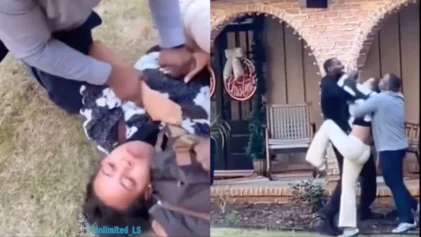Despite government efforts, we should have seen the most recent student protests coming. The country is fractured, still disadvantages the majority, and even if temporary measures quell current protest, it will not be the end, says Greg Nicolson.
Announcing his recommendation on fee increases last week, Minister Blade Nzimande was careful to list efforts in higher education and training.
“It is indeed a fine balancing act and we must all participate,” he said, “whether at the national level, in university administrations, or as student leaders – because it is the nature of balancing acts that if one falls, all fall.”
Two days later, students at the University of Witwatersrand edged towards police officers enforcing an interdict limiting student protests.
“We’re fighting for your children,” they told the cops. “Kill us like you killed people in Marikana.”
And, after the police set off stun grenades and fired rubber bullets, some students retaliated with rocks, saying: “I hate White people.”
The democratic government is spending billions to uplift the lives of the Black majority, but those lives often exist on the bitter dregs of a society designed to exclude, with competing debts the state cannot pay and struggle to prioritize. The democratic hope for dignity has not been met, leading here, where change is a universal demand. The how and how fast is a national knot still unraveling.
Fees Must Fall is about how a democracy deals with a history of oppression. It’s about healing broken bones, about a generation’s phantom limbs and its children refusing amputation.
Only about half of the students who start primary school make it to matric, with failure rates higher in rural provinces. The number of matric students who qualify for university studies remains low. The number of black students at universities has risen, but as a proportion in comparison to other racial groups it still remains low. Statistics differ, with the statistician-general saying there are still far too few black graduates. Others have lauded the huge increase. Black graduate unemployment remains at about 9 percent compared to 3 percent for whites.
Read more here.


